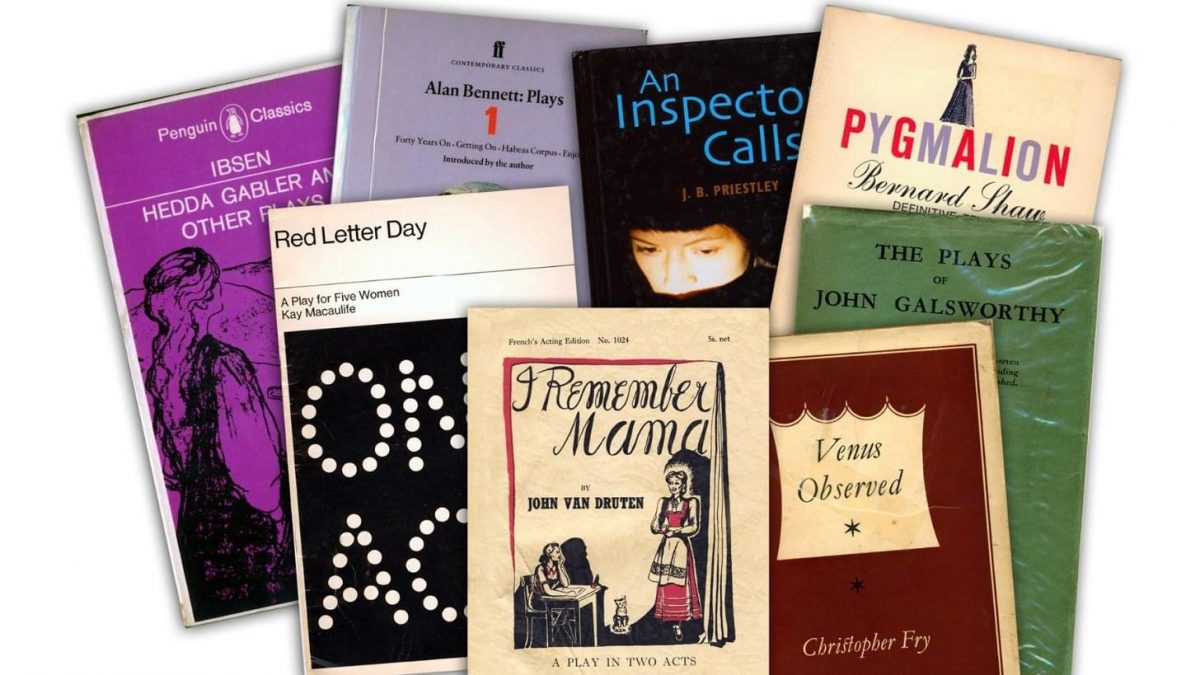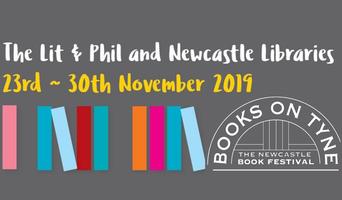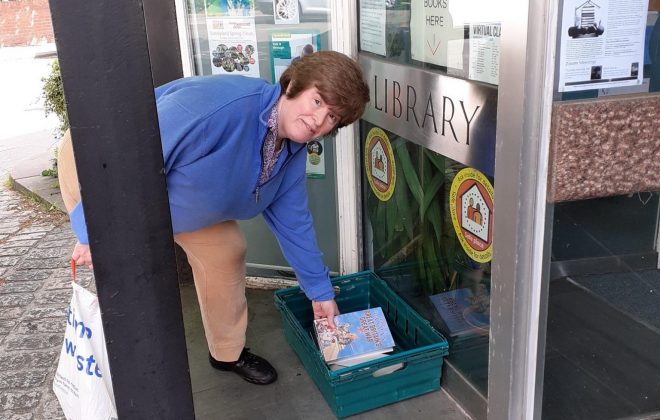Reading at Jesmond Library
A guest post by Toni Hurford
Reading is a personal thing. It occurs to me that it’s very related to love, as is writing. Even when it seems far from the subject what we strive to know more of seems to me something to do with love. Even when we have to read for school or a course or work and it is not what we want to be doing, then the reasons we are doing those things also seem related to love somehow. So, when Barbara asked me to write a blog piece about the library, or my writing or reading I realised this may tread on some personal ground – and I hope I can justify that.
In my early twenties I sometimes thought of joining the then Play Reading group at Jesmond Library. I wish I had, but I was shy and despite a degree in the arts I’d not studied literature since my O level. I imagined serious Shakespeareans for some reason, and powerful personalities. I’d lost track of how I could discuss literature well in the past. So I never made it. If I’d got along reality would have intervened and I might have done myself a lot of good and found a way to be myself amongst others doing this. A varied and interesting bunch I’m sure they’d have been. It may have helped prevent ill health, or recognise it and my reality amongst that of others.
In middle age as I got back to classes, groups and talking about reading it has been a sort of gift. I often look at my poems as steps back to health and my projected collection has had a working title, ‘A Staff of Asklepios’ (Asklepios is the Greek god of medicine). But reading on my own and in groups have also been part of that staff. Jesmond Library’s groups are something I’ve been grateful for at a time other options have not been or seemed possible.
Seamus Heaney
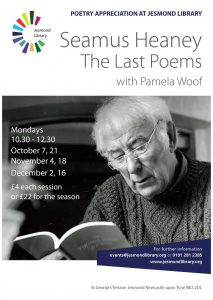
Three stand out to me – the first was the Seamus Heaney reading group led by Pamela Woof, whom I’d come across through the Centre for Lifelong Learning. I think I may have attended other courses at Jesmond with her and then this began. It was projected to last a short while but kept growing – I think I was away from it due to other commitments for months at one stage and came back and found we were rereading the collection I had left them reading to start with. It was a joy.
I don’t know any of the other participants well but in a way I do know them through how we interacted – and gained from each others’ perspectives on Heaney’s poetry and taking that time together to be with the poems. It was often amazing the insight gained from others with roots in or experience of Ireland for example. Together with Dr Woof’s deep learning and ability as a reader of poetry.
If part of what I am talking about about groups is learning to be with others in our reading then it helped to slow me down and touch my best amongst others and theirs. I don’t know when we began, it ended for me with Covid, but it is something I am grateful for and is alive in my reading of Heaney (and more).
Play Reading Group
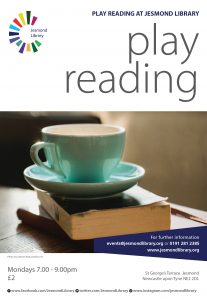
The next is the existing play reading group. Finally I made it and excellent it has been and is. At university a teacher had recommended reading dramas as a great way to get through literature quite quickly, it being relatively short usually and so a way of learning a lot. It is one of those excellent pieces of advice that is so excellent, perhaps because it was so good, I never really took it. Now after nearly a year of being part of this group I learn the wisdom of it each week. We’ve read fantastic plays, many I did not know and it’s been very healthy for me.
Of course drama can relate to that interest of mine in Asklepios, drama was part of the rituals at his sanctuaries – the theatre at Epidavros is famous. Something about the process of drama maybe helps us cleanse something, I wonder. And taking part in the drama by each reading a part and hearing the parts come alive in different voices perhaps takes us to a step between simply reading and acting. Though at the same time we get to read the whole play as we have the book in front of us. That makes for an interesting experience. I often think when we read drama we have a sense of the cohesion of the voices in the one voice of the author that is less apparent in the plurality of different voices in the theatre. In reading at the same time as hearing each other read the parts we (or I at least) have a mix of this. Being in this group and reading the plays we have has enlivened me and been good for me. Thank you to Sue Rea for her organisation of this.
Though one play I really struggled with. We read it in January and February this year and I described it after the first act as a miserable play. I wasn’t sure I’d stick with it. It was ‘The Iceman Cometh’ by Eugene O’Neill. If in other plays we tend to see the story reach some sort of turning point played out in front of us and answers shown, in this it seemed to reach a sort of anti-health climax and out of it the characters are confirmed in a sort of hopelessness. It was very hard to take. But only in the months afterwards looking back I realise it seems to have been part of some other things that seem to have prompted me to make some change myself. I notice it most in what I started to read at that time instead of letting myself be as diverted away from, which I won’t bore you with here. But it seems to have prompted me to be more active in making change happen. So whilst I hated reading it in a way and it challenged me hugely emotionally, it seems quite alive in my memory and as part of what I am doing, hopefully acting towards hope.
The Waste Land
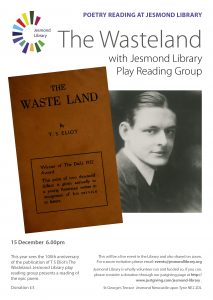
Amongst all this the third group was the reading Jesmond Library put on of The Waste Land by T. S. Eliot last December to mark the centenary of its publication. Again this is perhaps some problematical writing. I had read it several times but I am not sure I could say I wholly loved it. But again the group process, the voices and thoughts of others and preparing over several weeks by reading the play through aloud together multiple times, brought it far more to life for me and helped me grasp it as I never had and, amazingly, I am genuinely fond of it now. (Hmmm, can you be fond of ‘The Waste Land’, surely that’s not quite appropriate – and should you say it? Too late now.)
It was great to meet and focus on it with others and learn from them as ever. It led me to bump up on my wish list and then buy the book by Mathew Hollis that came out ‘The Waste Land, a Biography of a Poem’ which also helped immensely. Then it was also lovely to share where we’d got to (and with the help of Hugh Keegan’s directorship) in the reading we put on and the discussion we had afterwards. Something of an early Christmas treat.
Reasons to be grateful
So, ‘reasons to be grateful, one, two, three . . .’ and on. Thanks, Jesmond Library (and all your volunteers and makers possible) for hosting such things and being here still – there must be much more, let there be much more. Never let phantoms stop you doing the good things you love. I am sure Jesmond Library is for the whole community.
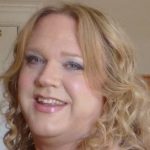 Toni Hurford is a poet and writer who has emerged in middle age, an unexpected outcome of her counselling research. She’d always hoped to write but had imagined it would be prose.
Toni Hurford is a poet and writer who has emerged in middle age, an unexpected outcome of her counselling research. She’d always hoped to write but had imagined it would be prose.blog
Recent Posts
Archives
- July 2024 (1)
- June 2024 (1)
- April 2024 (1)
- March 2024 (1)
- November 2023 (1)
- September 2023 (1)
- August 2023 (2)
- July 2023 (1)
- June 2023 (3)
- February 2023 (1)
- December 2022 (1)
- October 2022 (1)
- August 2022 (2)
- June 2022 (2)
- March 2022 (1)
- February 2022 (2)
- January 2022 (1)
- December 2021 (2)
- November 2021 (3)
- October 2021 (4)
- September 2021 (1)
- August 2021 (2)
- July 2021 (2)
- June 2021 (1)
- May 2021 (2)
- April 2021 (1)
- March 2021 (3)
- February 2021 (4)
- January 2021 (7)
- December 2020 (2)
- September 2020 (2)
- August 2020 (3)
- July 2020 (1)
- June 2020 (6)
- May 2020 (5)
- April 2020 (4)
- March 2020 (7)
- February 2020 (4)
- January 2020 (5)
- December 2019 (4)
- November 2019 (4)
- October 2019 (4)
- September 2019 (6)
- August 2019 (4)
- July 2019 (5)
- June 2019 (4)
- May 2019 (5)
- April 2019 (8)
- March 2019 (10)
- February 2019 (9)
- January 2019 (6)
- December 2018 (4)
- November 2018 (10)
- October 2018 (10)
- September 2018 (4)
- August 2018 (5)
- July 2018 (7)
- June 2018 (1)
- May 2018 (8)
- February 2018 (1)
Categories
- Book review (26)
- Client story (10)
- Events (180)
- Inspiration (97)
- Tips & tricks (1)
- Uncategorized (13)
- what's happened (22)

